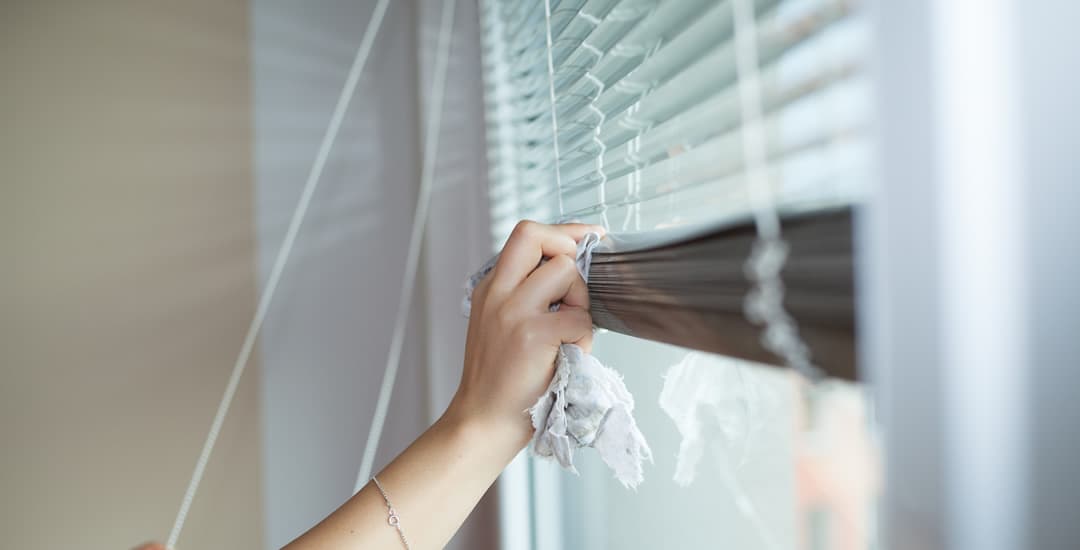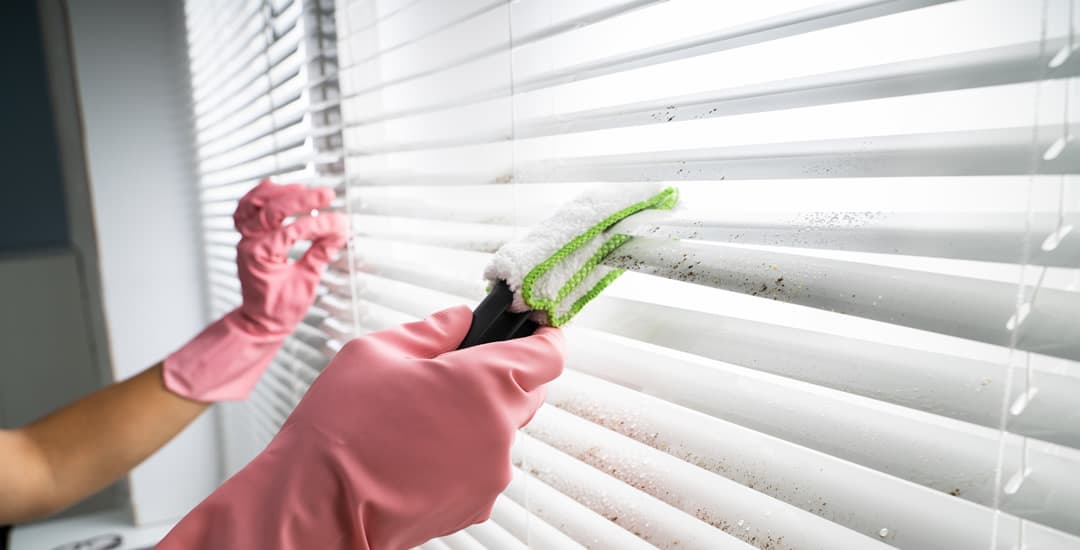
My mother did always tell me that I was likely to become less of a good example and more of a cautionary tale, and as such, I have a wealth of experience on how not to clean window blinds and/or how to ruin window blinds most efficiently, depending on your perspective.
Some window blind cleaning approaches are coolcool for certain types of blinds but not others, while some of the things that apparently occur to people based on the contents of my email inbox are a hard nope across the board.
In this blog post I’ll provide some tips on what not to do to your blinds of various types in order to ensure that their spring cleaning doesn’t in fact end up becoming their spring killing; so, here are my tips on things not to do to clean your blinds, unless you wish to clean them into an early grave.
Don’t get non-waterproof blinds wet (or feed them after midnight)
If your blinds aren’t waterproof, don’t wash them down, use detergent, or deliberately get them wet. You may well (and quite probably will) get away with using an ever-so-slightly damp cloth to spot-clean marks on many types of non-waterproof blinds occasionally, but approach this with caution and great care (starting on an area of the blind that is out of sight).
This should be obvious based on the above, but also, don’t try to wash any types of non-waterproof blinds in the bath…
Don’t put blinds in the washing machine unless they’re waterproof verticals (and maybe not even then).
Don’t try and put the fabric part of any type of blinds (waterproof or not) in the washing machine, with the possible exception of the louvres of vertical blinds, with care.
This means that the tumble dryer is out too, obs…
I feel like this should go without saying, but just in case; don’t try to put blinds/blind fabrics of any type in the tumble dryer. They absolutely will warp, tear, shrink, or whatever; view this tip with the same degree of gravitas as you would the one about not leaving dogs in hot cars.
Cooking your blinds with a powerful hairdryer is similarly unwise
Blind fabrics of any type won’t cope well with high heat, so don’t be tempted to put your hairdryer onto the flambé setting to dry your blinds off after cleaning them. However, with a very low heat or the cool shot button on and with the hairdryer kept in motion and a reasonable distance from your blind, you may be able to encourage it to dry a little faster.
Don’t use caustic, bleach-based, or otherwise heavy-duty detergents
Don’t clean blinds of any type with things like Zoflora (even if Mrs. Hinch told you you could) or any type of strong, caustic, or bleach-based product. Antibacterial-everything is pretty hard to avoid in cleaning products these days and that’s fine, but when it comes to overly strong cleaning products, these will quite likely damage, discolour, or otherwise offend both fabric blinds and those made of hard materials alike.
You might get away with household cleaning sprays that contain bleach on waterproof blinds, but even these might fade/bleach out with particularly strong products.
Don’t waste your time or money on Venetian blind dusting tools

Don’t bother with those “Venetian blind dusting tools.” These won’t actually harm your blinds as a rule, but they’re a monumental faff, wholly ineffective, and a big waste of money. I go on about these (and not in the good way) in great detail in the very last section of this blog post.
Blinds and vacuum cleaners have something of a complicated relationship
Vacuum cleaners and blinds can make for uneasy bedfellows, particularly if you’re dealing with a Dyson or something else capable of producing its own gravitational field. For some types of blinds, you might be able to use the small brush attachment on a low power setting to clean the blind, but this can be fiddly, not always effective, and may potentially cause damage to the fabric of some blinds. Definitely avoid this for blinds made of fine or delicate fabrics like Roman blinds and day and night blinds.
When it comes to the actual sucky tube bit of vacuums, this is a hard nope for me; it’s probably going to suck the fabric up to an extent and not give it up willingly/potentially give it up with more dirty marks on it from its trip into the mouth of the tube than it went in with.
If it seems like a good idea but it appears like nobody else has done it before, consider why this is
This list is not exhaustive, so don’t assume that if your blinds-cleaning brainwave isn’t specifically mentioned on it that it’s ok.
If you have thought up or come up with an idea on how to clean blinds and can’t see mention of it either positive or negative online already, feel free to drop me a line and ask me about it before you put it into action. I may be able to tell you right away if it’s a winner or a loser, and if not, I have access to all types of blinds materials, samples, and design misfires that I can try it out on on your behalf.




